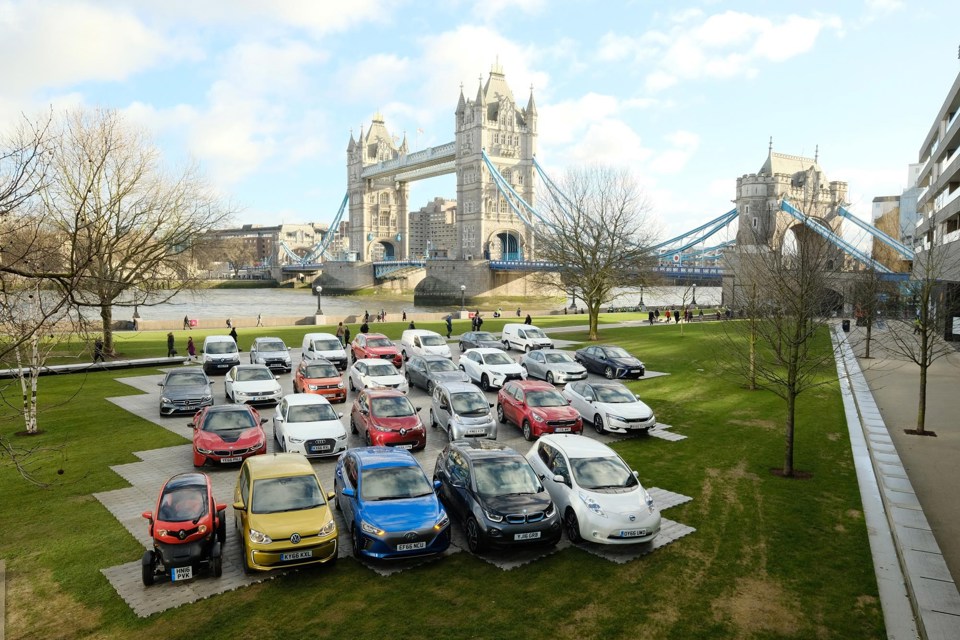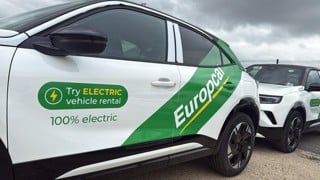SMMT chief executive Mike Hawes has called on the Government to take a “consistent approach” to incentives for ultra-low emission vehicles (ULEVs).
His comments followed an SMMT-funded YouGov survey of 2,100 drivers, which found that charging and cost concerns are still deterring drivers from choosing an EV.
Nearly half (48%) of drivers are less likely to consider purchasing an EV because they are worried they won’t be able to find an available, working and compatible charging point, 46% are concerned about battery reliability and the cost of replacement, and 43% are worried about there being ‘no convenient charging locations near to my home/pace of work’.
The purchase price of EVs is the next biggest concern with 41% saying it is ‘more than expensive than other fuel types’.
However, if these concerns are addressed drivers are more likely to choose an electric car with 51% saying ‘having low running costs’ would encourage them to purchase an EV, followed by ‘having confidence I would always be able to find an available, functioning charging point when I needed one’ (47%), having cheaper/zero car tax’ (46%), receiving money off the purchase price via incentives such as the Government plug-in car grant (36%) and ‘the convenience of being able to charge my vehicle at home’ (36%).
The survey also found that the majority of consumers (68%) are not aware of changes to the new car VED regime coming in April.
Under the new system, two-thirds (66%) of alternatively-fuelled vehicles that currently qualify for the £0 standard rate will be subject to an annual flat rate charge of £130, in addition to varying levels of first year tax.
Those with list prices above £40,000 – which will include some of these new technology vehicles – will also have to pay an annual £310 premium car surcharge.
However, the UK automotive sector is committed to developing the latest low emission vehicles and demonstrated this with a special display in London yesterday (February 23), with 26 vehicles from 16 different brands lined up by London’s Tower Bridge (pictured).
There are currently 83 different alternatively-fuelled cars and vans available to British buyers and registrations have grown more than threefold over the past five years. In January this year they recorded their highest ever market share at 4.2%, according to the SMMT.
Mike Hawes, SMMT chief executive, said: “Thanks to massive investment by vehicle manufacturers, British car buyers have never enjoyed so much choice and, as today’s display shows, that extends to every fuel type.
“However, our survey highlights the need for ongoing Government support for this new market. We want to encourage more people to switch to ultra-low emission vehicles in meaningful numbers but more must be done to boost buyer confidence.
“A consistent approach to incentives – fiscal and otherwise – and, most importantly, greater investment in the charging network is essential if we are to grow this emerging market.”
Transport Minister John Hayes, said: “Alternatively-fuelled vehicles help clean up our environment and save motorists money in day-to-day running costs, and I’m delighted to have had the opportunity to have a look at some of the vehicles available to UK drivers today.
"We are working with determination to get more people switching to low emission vehicles. Our Vehicle Technology and Aviation Bill published this week, will make sure the right infrastructure – such as electric charge points and hydrogen refuelling stations – is in place for this growing market.
"We’ve committed more than £2 billion since 2011 to increase electric vehicle uptake and support greener transport schemes. This includes £290 million, announced in the Autumn Statement, to support electric vehicles, low emission buses and taxis, and alternative fuels.”



















Login to comment
Comments
No comments have been made yet.